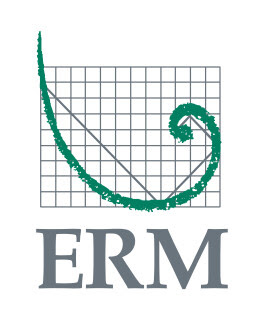SINGAPORE – Media OutReach – 13 June 2023 – The latest research from GlobeScan and the SustainAbility Institute by ERM finds that sustainability leadership increasingly requires going beyond compliance towards developing innovative business models with sustainability at their core. Legislative actions, standardisation of sustainability-related disclosures, the COP15 biodiversity framework and business actions are also recognised as pivotal sustainability developments over the last 12 months.
The GlobeScan / SustainAbility Survey: 2023 Sustainability Leaders surveyed over 500 sustainability professionals from corporate, government, academia and non-profit sectors across 63 countries between March and May 2023. As the largest and longest-running survey of its kind, the GlobeScan / SustainAbility Institute by ERM Leaders survey has tracked expert opinions on sustainable development leadership for more than 25 years.
The research also shows experts looking for evidence of positive impacts, along with aspirational goals and a sense of genuine purpose, highlighting the need to continue taking ambitious approaches in the face of increasing pressure from regulation and disclosure requirements.
The key survey findings with Asia Pacific highlights include:
- Key developments on the sustainability agenda: Asia-Pacific’s sustainability leaders viewed legislation and business action towards sustainability (14%) as the most significant positive development. This is followed by sustainability disclosure standards (11%) and renewables and carbon-related developments (10%).
- What makes sustainability leadership: Integrating sustainability into business model and strategy ranked as the most important drivers for corporate sustainability leadership (27%), which is consistent with counterparts’ views from Europe, North and Latin America. Evidence of impact and action (17%) and setting ambitious targets (16%) are also key factors in demonstrating leadership.
- Corporate sustainability leaders in Asia-Pacific: Mahindra & Mahindra rose from third place last year to clinch the top spot as the region’s corporate leader in sustainability. City Developments Ltd. and PTT Global tie at second place, while Tata has dropped from leading the pack in 2022 to fourth place. Other notable corporate sustainability leaders include: Charoen Pokphand Group, Samsung, Swire, Toyota, Kao and SCG.
Urgency of sustainable development challenges and recent breakthroughs
Ninety-three percent (93%) of sustainability experts continue to rank climate change as the most urgent challenge. Deforestation was included in the survey for the first time in 2023 and ranks among the top five most urgent issues (86%). Other issues ranking consistently high in urgency over the past five years include biodiversity loss (86%), water scarcity (86%), and poverty (80%).
Globally, sustainability experts point to a range of new sustainability legislation such as the Inflation Reduction Act (IRA) and EU Green Deal (mentioned by 25%), disclosure standards (13%), and the COP15 biodiversity agreement (10%) as most significant. Other highlighted developments include recent action and commitments by businesses (9%) and the rise of green financing (7%).
Mark Lee, Director of the SustainAbility Institute by ERM said: “Companies are increasingly integrating sustainability into their business strategies and are recognised as leaders for doing so. This year’s leader, Patagonia, has taken integration of sustainability to an unprecedented level by channeling all profits to nature and climate action. The bar for sustainable business continues to rise, and corporates will need to keep pushing boundaries to maintain their status as leaders.”
Chris Coulter, CEO of GlobeScan said: “Government is back when it comes to sustainability! Stakeholders point to new legislation and disclosure rules as the most important breakthroughs in the sustainability agenda in the past year.”
Company and NGO leadership on sustainable development
For the first time in this survey, Patagonia (mentioned by 32% of experts) is the company most recognised by sustainability professionals for its work on sustainability, unseating Unilever (29%) which had enjoyed the top spot for over a decade. IKEA (10%), Natura &Co (9%), and Microsoft (6%) round out the top five.
Experts are increasingly prioritising tangible impact and action (mentioned by 23% of experts) and setting ambitious goals and targets (16%) while continuing to cite placing sustainability at the very core of the business model (31%) as the prime reason they recognise a company as a leader.
While the list of globally recognised sustainability leaders has changed only modestly in recent years, different names emerge when experts are asked to identify sustainability leaders among companies headquartered in their own regions. Experts in Africa and the Middle East highlight Safaricom (12%), Nedbank (10%), and Woolworths (10%) as regionally based sustainability leaders. In Latin America and the Caribbean, Natura &Co is the stand-out recognised sustainability leader named by 46 percent of experts in that region, followed by Suzano (16%) and O Boticário (15%).
Among NGOs, sustainability experts continue to overwhelmingly recognise the World Wildlife Fund as the leader in sustainable development (named by 42%) followed by Greenpeace and organisations tied to the United Nations such as the Global Compact (named by 15% each) and the World Resources Institute (named by 14%).
Notes to editors
The GlobeScan / SustainAbility Institute by ERM Survey of Experts stakeholder research programme captures insights from sustainability experts and charts the shifting sustainability agenda over time.
As the largest and longest-running survey of its kind, it has tracked expert opinions on sustainable development leadership for more than 25 years. The research draws from bi-annual surveys of our global panel of experienced sustainability experts (including leaders in business, government, NGOs, and academia) on topics such as recognised leadership, climate change, biodiversity, inequality, the SDGs, and key emerging issues.
A total of 520 qualified sustainability experts across 63 countries and representing different sectors including Corporate, Service & Media, Academia, NGOs, and Government completed the online questionnaire between March 13 and May 7, 2023. The survey was offered in Arabic, Chinese, French, Portuguese, and Spanish, in addition to English.
About the SustainAbility Institute by ERM
The SustainAbility Institute is ERM’s primary platform for thought leadership on sustainability. Its purpose is to define, accelerate, and scale sustainability performance by developing actionable insight for business. The Institute identifies innovative solutions to global sustainability challenges built on ERM’s experience, expertise, and commitment to transformational change.
As the largest global pure play sustainability consultancy, ERM partners with the world’s leading organisations to create innovative solutions to sustainability challenges and unlock commercial opportunities that meet the needs of today while preserving opportunity for future generations.
ERM’s diverse team of 7,500+ world-class experts in over 170 offices in 39 countries supports clients across the breadth of their organisations to operationalise sustainability. Through ERM’s deep technical expertise, clients are well-positioned to address their environmental, health, safety, risk, and social issues. ERM calls this capability its “boots to boardroom” approach – a comprehensive service model that allows ERM to develop strategic and technical solutions that advance objectives on the ground or at the executive level.
Learn more: ![]() www.sustainability.com
www.sustainability.com
The issuer is solely responsible for the content of this announcement.
Hashtags: #ERM





